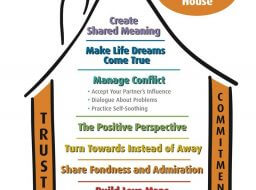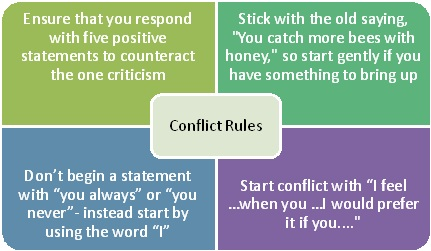- HOME
- PSYCHOLOGICAL SERVICES
- ONLINE COURSES
- Our Partnership Begins When You Purchase an Online Course
- Get to Know Dr. D’Arienzo, Relationship Expert
- Florida Premarital Preparation Online Course
- Georgia Premarital Education Online Course
- TwogetherinTexas Premarital Online Course
- Tennessee Premarital Preparation Online Course
- Minnesota Premarital Education Course Online
- Oklahoma Premarital Counseling Online Course
- South Carolina Premarital Preparation Course
- West Virginia Premarital Education Course
- Online Marriage and Relationship Tune Up Course
- Florida DCF Certified Parent Education and Family Stabilization Online Course
- Georgia Qualified Parent Education and Family Stabilization Online Course
- Texas Qualified Parent Education and Family Stabilization Online Course
- High Conflict Co-Parenting Online Certificate Course (8 Hours)
- Online Anger Management Four Hour Course (Level 1)
- Online Anger Management Eight Hour Course (Level 2)
- Sexual Harassment Online Training
- BUSINESS & PERFORMANCE PSYCHOLOGY
- CLINICAL, COUPLES, & FAMILIES
- ADHD Treatment & Evaluation Services
- Anger Management
- Anxiety Treatment & Evaluation Services
- Borderline Personality Treatment Services
- Cognitive Behavioral Therapy (CBT) Self-Help
- Couples Counseling and Marital Therapy
- Consent for Psychological Services for Minors Post-Divorce
- Depression Treatment Services
- Infidelity Recovery
- Jacksonville Counseling and Psychology
- Military Psychology & Tricare
- Narcissistic Personality Treatment Services
- Online Counseling
- Psychoeducational Testing
- Psychological Testing and Assessment
- Psychotherapy & Counseling
- FORENSIC PSYCHOLOGY & EXPERT TESTIMONY
- LIFE COACHING & EXECUTIVE COACHING
- MMPI TESTING & ASSESSMENT FOR SECURITY AND LEO
- CPI Police and Public Safety Assessment
- G License Psychological Testing
- Online Psychological Testing for Armed Security Guards and Personal Protection Officers
- MMPI Texas Level III CSO and IV PPO Psychological (ONLINE)
- Requirement for Texas Security License Applicants: MMPI Evaluation
- Level 3 Security Guard New Mexico Online MMPI Psychological Evaluation
- PSYCHOLOGICAL PUBLIC DISABILITY QUESTIONNAIRES (DBQ)
- ONLINE COURSES
- TEAM
- D’Arienzo Psychological Group Overview
- Dr. Justin D’Arienzo, Psy.D., ABPP
- Mario Decunto, LMHC
- Dr. Amy Hartley, Ph.D.
- Dr. Erica Janson, Psy.D.
- Alan Lipzin, LMHC
- Cynthia Salameh, Esquire
- Wendy Monger, Tutoring Specialist and Academic Coach
- Dr. Michael Nackashi, Psy.D., Clinical Psychologist
- Joseph Zichi, LCSW
- Mack, Roman and Roxy D’Arienzo
- MERCH & SOCIAL MEDIA
- BOOKS
- APPT REQUEST
D'Arienzo Psychology Blog
Accessing Mental Health Care with Non-Network Providers for Mayo Clinic Employees

Posted by: Dr. Justin D'Arienzo, Psy.D., ABPP
For Mayo Clinic employees, prioritizing mental health is essential for maintaining overall well-being. While the Mayo Clinic’s health insurance offers comprehensive coverage for mental health services, there are instances where employees may choose or need to see a non-network provider. Whether it’s due to a specific therapeutic need, a preferred specialist, or geographic limitations, understanding how to navigate reimbursement for these services is crucial. This article provides a guide for Mayo Clinic employees seeking mental health services outside the insurance network.
D’Arienzo Psychology has served multiple Mayo employees over the last 20 years as non network psychologists, counselors, and therapists. We are accustomed to filling out the necessary forms to assist you in getting reimbursed. It has been our experience that a large portion of your bills are reimbursed by Mayo’s insurance plan. Don’t be anxious about the process. You deserve the best mental health services available, and we can help you get them with us. Contact us at 904-379-8094 or [email protected]
Cognitive Behavioral Therapy (CBT) Explained

Posted by: Dr. Justin D'Arienzo, Psy.D., ABPP
Cognitive behavioral therapy (CBT) is a type of psychotherapy that focuses on changing the way people think and behave. It is one of the most widely used forms of psychotherapy in the world, and it has been shown to be effective in treating a wide range of mental health conditions, including depression, anxiety, and eating disorders. What is CBT? CBT is based on the idea that our thoughts, feelings, and behaviors are all interconnected. In other words, the way we think about things can have a big impact on how we feel and how we behave. CBT helps people to identify negative or unhelpful thinking patterns, and to learn how to challenge these patterns and replace them with more helpful ones. How does CBT work? CBT is typically conducted over a series of weekly or biweekly sessions. In each session, the therapist will work with the client to identify specific problems that they are facing, and to develop a plan for addressing these problems. The plan may include a variety of techniques, such as: Cognitive restructuring: This involves identifying and challenging negative or unhelpful thoughts. Behavioral experiments: This involves testing out new behaviors in order to see if they lead to more positive outcomes. Exposure therapy: This involves gradually exposing people to situations that they find anxiety-provoking, in order to help them overcome their fear. What are the benefits of CBT?
CBT has been shown to be effective in treating a wide range of mental health conditions, including: Depression, Anxiety disorders, Eating disorders, Post-traumatic stress disorder (PTSD), Substance abuse, Chronic pain, and Insomnia
The Gottman Approach to Couples Therapy

Posted by: Dr. Justin D'Arienzo, Psy.D., ABPP
The Gottman Approach is a research-based approach to couples therapy that has been shown to be effective in helping couples improve their communication, resolve conflict, and strengthen their relationships. What is the Gottman Approach? The Gottman Approach is based on the idea that all relationships go through ups and downs, and that it is possible to learn how to weather the storms and come out stronger on the other side. The approach focuses on helping couples to: Understand their own and their partner’s emotional needs. Communicate effectively with each other. Resolve conflict in a healthy way. Build trust and intimacy. Maintain a positive outlook on their relationship.
How does the Gottman Approach work? The Gottman Approach is typically conducted over a series of weekly or biweekly sessions. In each session, the therapist or psychologist will work with the couple to: Identify their strengths and weaknesses as a couple. Learn how to communicate effectively with each other. Resolve conflict in a healthy way. Build trust and intimacy. Maintain a positive outlook on their relationship.
5 Tips for Effective Communication

Posted by: Dr. Justin D'Arienzo, Psy.D., ABPP
Communication is one of the most important skills in any field. Whether you’re a student, a professional, or just trying to get through your day, being able to communicate effectively can make a big difference. In this post, we’ll discuss five tips for effective communication. By following these tips, you can improve your communication skills and make a positive impact on your relationships, your career, and your life. Tip #1: Be clear and concise. When you’re communicating with someone, it’s important to be clear and concise. This means using language that is easy to understand and avoiding jargon or technical terms that the other person may not be familiar with. It also means getting to the point quickly and avoiding rambling.
Tip #2: Use active listening skills. Active listening is just as important as clear communication. When you’re listening to someone, it’s important to make eye contact, nod your head, and ask clarifying questions. This shows the other person that you’re paying attention and that you’re interested in what they have to say. Tip #3: Be respectful of others. Even if you disagree with someone, it’s important to be respectful of their opinion. This means avoiding personal attacks and name-calling. It also means listening to their point of view and trying to understand where they’re coming from. Find out more tips….
How to Spot a Narcissist

Posted by: Dr. Justin D'Arienzo, Psy.D., ABPP
How to spot a narcissist? Dr. D’Arienzo, Clinical Psychologist here. I am going to share five signs that indicated you might be dealing with a narcissist. Receiving criticism: Their fragile self-esteem can’t even handle constructive criticism. Feedback seems like a direct attack. Losing Control: When they lose control of situations and people around them, they feel powerless because it contradicts their grandiose image of themselves. Not being admired: They thrive on admiration and attention and when they are ignored and don’t get what they think they deserve they pout, and get frustrated and angry. Being exposed: They create a false persona to maintain their inflated self-image but when someone exposes their true self, vulnerabilities or manipulations, they go on the attack. Losing a competition: They think they are superior to others and when someone beats them, they feel inferior, so they react with rage, make excuses, and “file away” a serious resentment. Losing is personal to a narcissist. Obviously, we all have some of these traits, but if you’re narcissist, you would have most of these and to the extreme. If that’s you or your in a relationship with one, get professional help.
Planning a Spring Wedding?

Posted by: Dr. Justin D'Arienzo, Psy.D., ABPP
Are You Planning a Spring Wedding? The Allure of Spring Weddings: Celebrating Love Among Blossoms and New Beginnings. The transition from winter to spring represents a time of renewal, growth, and beauty. As nature awakens and blooms, it’s no wonder that many couples choose this season to begin their journey together as a married couple. Spring weddings have a certain charm and romance that can’t be replicated in other seasons. From the abundance of flowers to the mild weather, spring provides an enchanting backdrop for a magical wedding. In this article, we’ll explore the top reasons why you should consider getting married in the spring.
See below for information about our Florida, Texas, Georgia, Tennessee, Minnesota, Oklahoma, and South Carolina Premarital Preparation Courses.
How do you talk to your children about divorce?

Posted by: Dr. Justin D'Arienzo, Psy.D., ABPP
Talking to your children about divorce can be a difficult and emotionally draining conversation especially as you anticipate having this necessary conversation. However, it is important to approach it in a sensitive and age-appropriate way. Here are some general tips on how to talk to your children about divorce:
Schedule a family meeting: It’s best that both parents schedule a family meeting to talk to the children together. Having a meeting on a Friday evening or Saturday morning is best so the children can emtionally process this difficult situation and understand what the action plan is for the family prior to returning to school on Monday morning. Please note that this meeting should be one meeting of many, and this step should be repeated several times throughout the divorce process.
Signs Someone is Cheating

Posted by: Dr. Justin D'Arienzo, Psy.D., ABPP
Okay, guys, he are real signs and examples that someone has been cheating straight from the psychologist’s couch. These examples have been altered slightly to protect those who exercised these behaviors, and know that I’ve (Dr. Justin D’Arienzo) heard all these examples many times from multiple patients. There are definite patterns of behavior related to infidelity that humans typically exercise.
How Does Divorce Coaching Work?

Posted by: erica
Want to see if divorce coaching is right for you? Ms. Cynthia Salameh, attorney and certified Florida Supreme Court Family Mediator practices at D’Arienzo Psychology as a qualified parenting coordinator and divorce coach. Give us a call today at (904) 379-8094 to get started!
Minnesota Premarital Course

Posted by: Dr. Justin D'Arienzo, Psy.D., ABPP
Nowhere else can you gain access to so much relationship changing information for $30 from a board certified clinical psychologist and a certificate to save $75 dollars on your Minnesota Marriage License.




